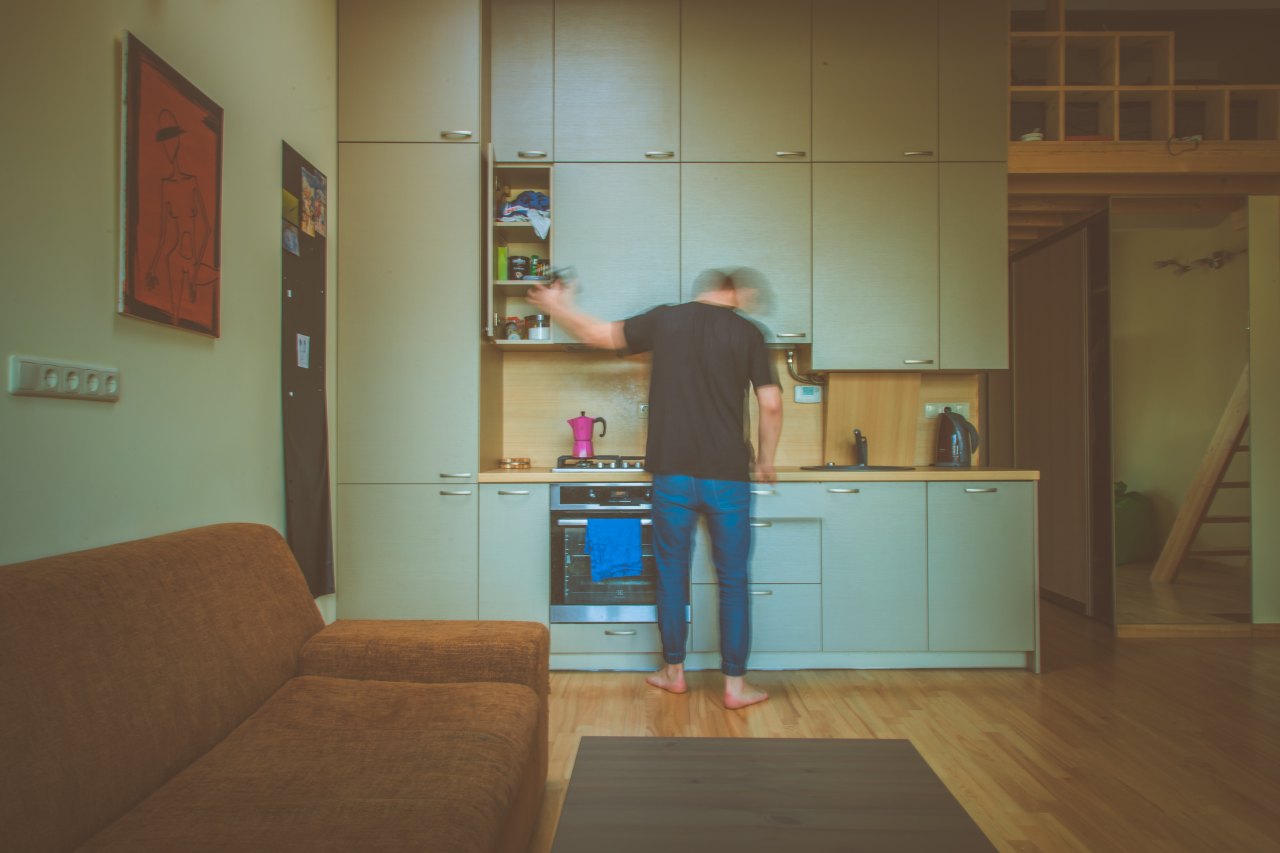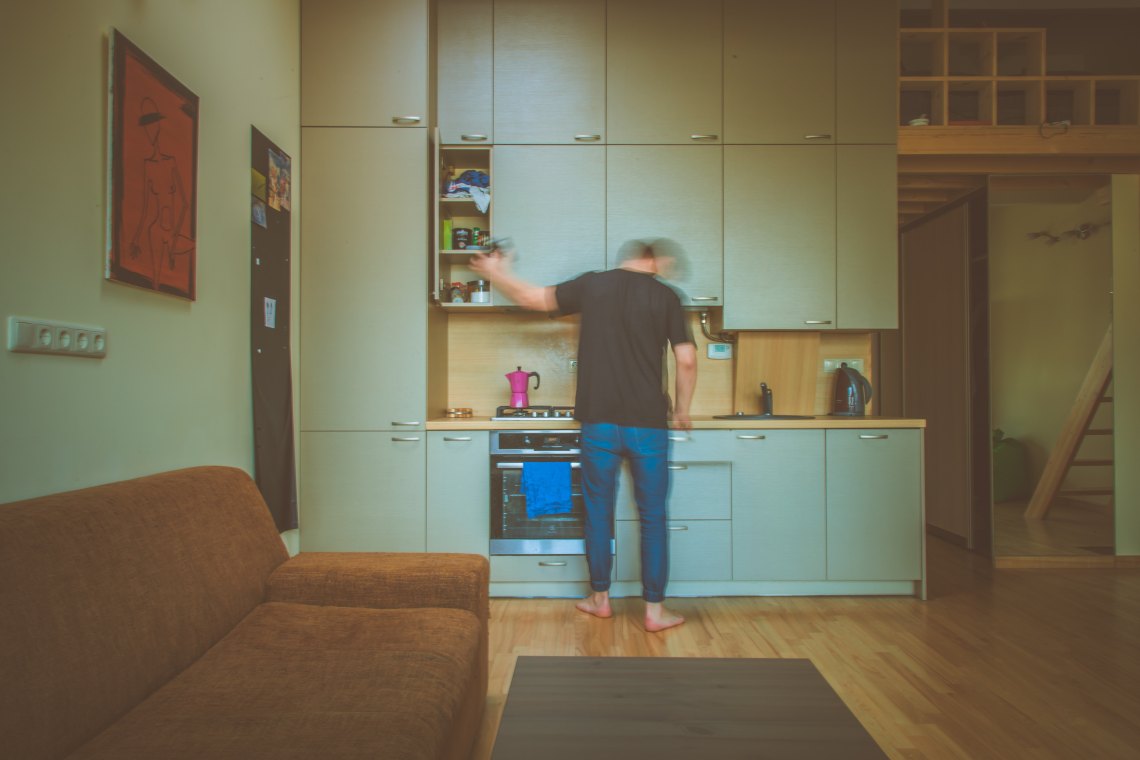I was only 33.
I was young, fit, and strong.
But I felt like I was having a heart attack.

Kipras Štreimikis
It wasnt a heart attack.
I later learned that it was an anxiety attack (sometimes called a panic attack).
When Depression and Anxiety Overlap
I didnt know, but I should have.

This was not my first experience with anxiety.
It was my strongest episode, and it certainly got my attention, but it wasnt my first rodeo.
I had already been diagnosed with major depression years earlier, which is why I used the word too.

Kipras Štreimikis
But the wordanxietywasnt in my diagnosis, so I didnt pay attention to that part.
(Actually, Im also guilty of ignoring the depression part.
Or rather hiding it from myself as well as others.
Understanding Anxiety
Its amazing how long humans can ignore their problems.
My first anxiety attack didnt send me to the hospital.
The symptoms are so close to a heart attack that many people just go to the ER.
You dont want to mess around with chest pain and palpitations.
Going to the hospital during an anxiety attack sounds to me like just about the worst thing ever.
The 10th circle of hell.
The emergency room causes anxiety for a normal person.
Now imagine going through all those tests while having the worst anxiety of your life.
Seriously, people who endure that are badasses.
They have my respect.
What Anxiety Feels Like
Whats it like to have an anxiety attack, even without the hospital?
For me, its a storm that rolls in suddenly, bringing palpitations, sweating, and chest pain.
I sometimes hyperventilate as well.
But the worst part is that I lose my ability to think clearly.
Its like I can no longer trust my brain.
Something isnt working right in there.
This is my own experience with anxiety.
Other people have different experiences.
Holy Epidemic, Batman!
Thats over 40 million people!
Half of those people also suffer from some form of depression.
Im one of the millions of Americans who suffer from both depression and anxiety.
Anxiety disorders cost the U.S. over $40 billion every year (source).
Unfortunately, the epidemic is getting worse, not better.
Okay, maybe not unique.
Im not the only person on the planet with this combination of qualifications.
But Im still a rare bird, dammit.
When the Monkey Mind runs amok, the qi (or vital energy) also runs amok.
And when the qi runs amok, the human nervous system also runs amok.
The purpose of Zen, and indeed all forms of meditation, is to quiet the monkey mind.
To calm the nervous system, we need to calm the qi.
And to calm the qi, we need to quiet the monkey mind.
Technically, it is simple.
But simple aint always easy.
The solution to anxiety is meditation.
Meditation gets to the roots of the problem i.e.
In short, meditation gives you the ability to tame that annoying monkey in your head.
And when that happens, the qi flows smoothly, and your nervous system is not agitated.
But what is meditation?
Moving Away from Sitting Meditation
Meditation is the solution but not just the sitting kind.
Sitting meditation, done correctly and consistently, is a wonderful solution to anxiety.
Perhaps even the ultimate solution.
Theres even a growing body of science to back this up.
I recommend Dan Harris excellent book10% Happierfor a skeptics guide to sitting meditation.
Harris is a news anchor who had an anxiety attack on live TV.
Hes done some great work in spreading the information and interest about sitting meditation.
(For those who dont know, the Brahms violin concerto is really really really hard to play.)
This is a sink or swim approach.
Some will swim, like Harris.
But many will sink.
Many of you reading this know exactly what Im talking about.Youve tried sitting meditation, and you failed.
No, not just torture.
Meditation Without All That Sitting Around
So whats the solution for us?
Meditation is still the solution but not the sitting kind.
It gives the Monkey Mind a banana to chew on.
This is because people in the qigong and tai chi world constantly obsess about the form.
I give my students permission to butcher the external form of qigong and tai chi.
That was an A-.
Now show me a C+.
The truth is you dont even need movement.
But gentle, flowing movement is beautiful, and it is liberating for many people with anxiety.
Even a tiny amount of movement, combined with breathing, can make a huge difference.
And these tools work amazingly well.
Its almost like popping a pill for me.
If I feel my anxiety rising, I pop a qigong or tai chi pill.
And it works every time.
Im planning to do a 10-day sitting meditation retreat.
In this retreat, Ill be asked to sit for 8-10 hours per day.
And theres no talking either.
I would not make it through day 1.
Heck, I wouldnt make it through hour 1.
My point is that you work your way up to (down to?)
sitting meditation rather than starting with it.
It took me 20 years to fall in love with sitting meditation.
But during that time, I had a beautiful affair with qigong and tai chi.